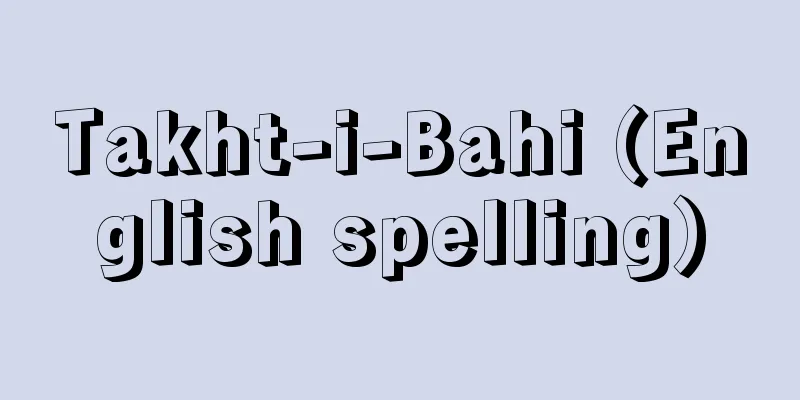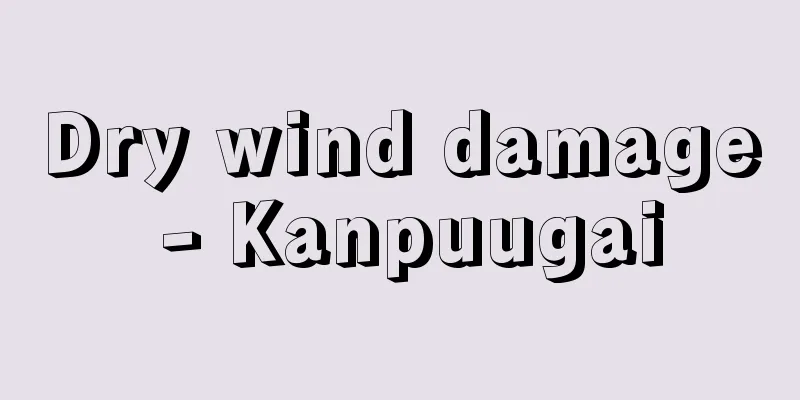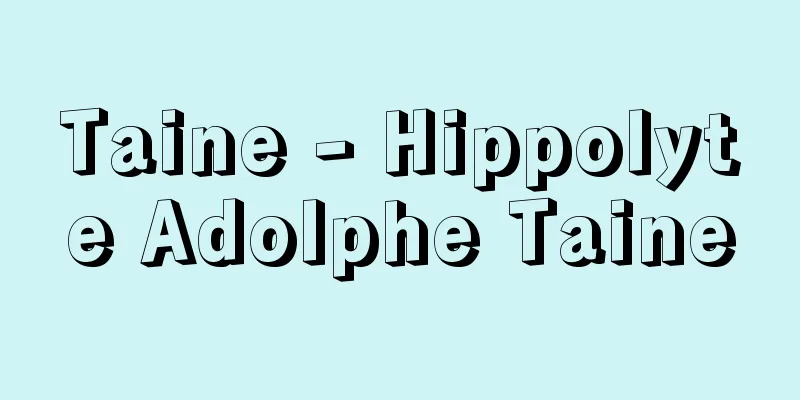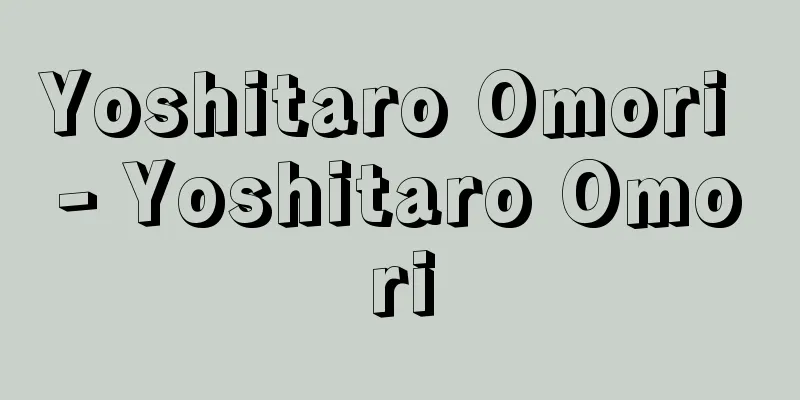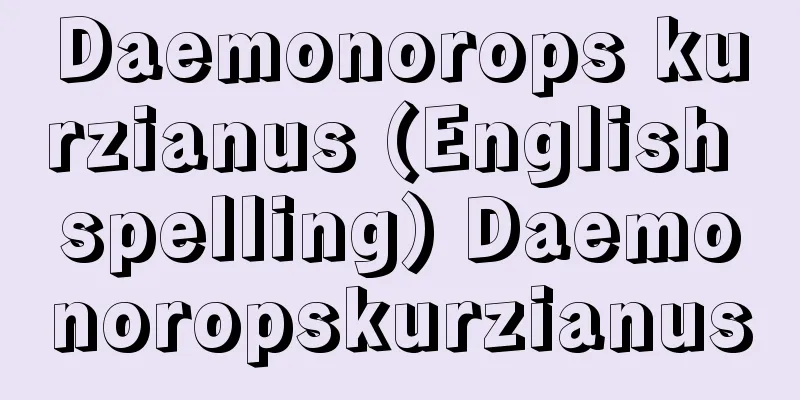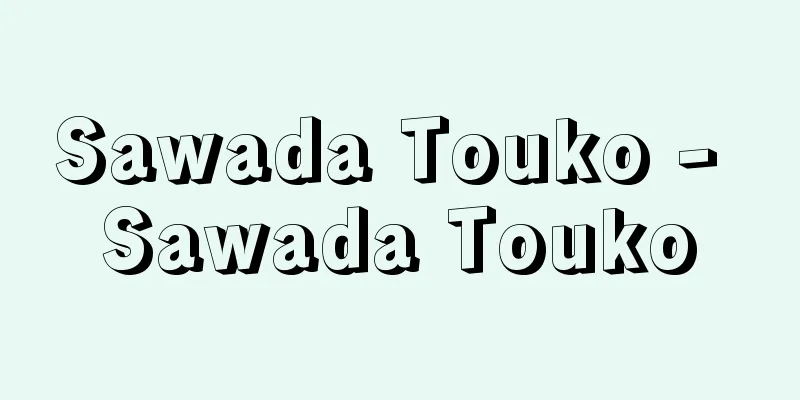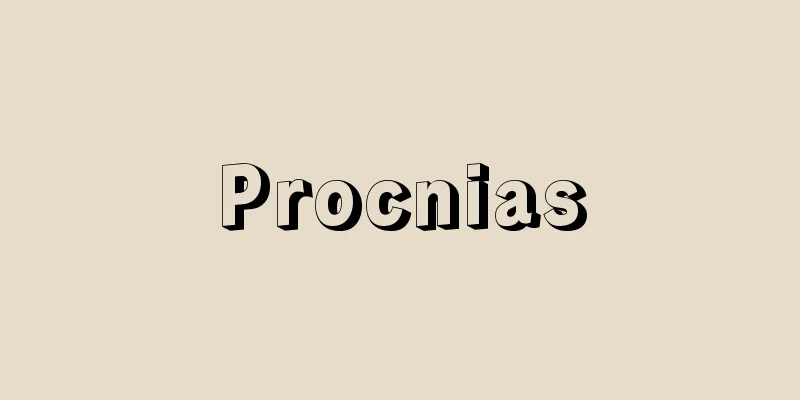Insecticide - Sacchuzai
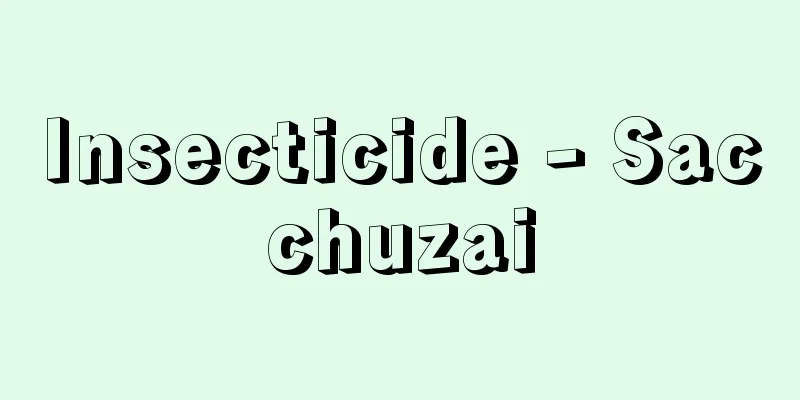
|
Chemicals used to control and exterminate pests. Insecticides (household insecticides) are also used to control and exterminate sanitary pests such as flies and mosquitoes, but this article will explain about insecticides used to protect agricultural crops. [Tamura Hiroto] Insecticides as pesticidesChemicals used to control insects that harm crops (including trees and agricultural and forestry products) are called insecticides. Historically, since the beginning of agriculture, humans have been constantly plagued by pests and diseases, and the main method of control was based on Shinto rituals to drive away the diseases. In Japan, it reached its peak from the mid-Edo period onwards, and until around 1945 (Showa 20), the "Mushi Okuri" (Bug-chasing) Shinto ritual was held in rural areas all over the country, where "insect repellent charms" were placed on farmland and prayers were made for safety. However, an ancient document ("Kaden Satsuchu San"), which is said to have been written at the end of the 16th century, contains records of the production and use of a pesticide that mixes five types of ingredients, including morning glory seeds and monkshood roots. There are also records from the Edo period of pouring whale oil and rapeseed oil over rice paddies to exterminate rice planthoppers. In France, in 1781, Pierre-Joseph Buc'hoz (1731-1807) wrote a book entitled "Discourse on Vermin of Man, Livestock, and Other Insects", in which he described methods for controlling the many insects, mites, and spiders that were harmful to humans, livestock, and agriculture. Insecticides are classified according to the route of exposure (entry) that causes toxicity to insects: contact agents that penetrate the insect body through the skin and exert their insecticidal activity, edible agents that exert their insecticidal activity by entering the body through the mouth due to the insect's feeding behavior, and fumigants that exert their insecticidal activity when the insecticide vapor (gas) enters the body through the respiratory organs. In addition, according to how insecticides exert their insecticidal activity, that is, the interaction between the insecticide and its target (mode of action), they are classified into neuroactive agents that act on the insect nervous system, energy metabolism inhibitors, and growth regulators that inhibit the growth of insects. As such, insecticides are classified in various ways, but they can be mainly divided into organophosphate insecticides, carbamate insecticides, pyrethroid insecticides, neonicotinoid insecticides, dibenzoylhydrazine insecticides, and benzoylphenylurea insecticides based on their common chemical structure. [Tamura Hiroto] [References] | | | | | | | | | | |Source: Shogakukan Encyclopedia Nipponica About Encyclopedia Nipponica Information | Legend |
|
害虫を防除・駆除するための薬剤。ハエやカなど衛生害虫の防除・駆除に用いられるものも殺虫剤(家庭用殺虫剤)とよばれるが、ここでは農作物を保護するために用いる殺虫剤について解説する。 [田村廣人] 農薬としての殺虫剤農作物(樹木および農林産物を含む)を害する昆虫を防除するために用いる薬剤を殺虫剤と称している。歴史的には、人類は農耕を開始して以降、絶えず病害虫の被害に悩まされてきたが、おもな防除法は、病害退散の神事に拠(よ)っていた。日本では、江戸時代中期以降に全盛を迎え、1945年(昭和20)ごろまで「虫送り(虫追い)」神事が全国各地の農村で執り行われ「虫除け札」を農地に立て無事を祈願していた。しかし、16世紀末に記されたとされる古文書(「家伝殺虫散」)には、アサガオの種やトリカブトの根など5種類を混ぜる農薬の生成法ならびに使用の記録が存在する。江戸時代には、鯨油(げいゆ)や菜種油を田面に注ぎ、水稲のウンカ類を駆除したという記録もある。フランスでは、1781年にピエール・ジョゼフ・ビュショPierre-Joseph Buc'hoz(1731―1807)が人間・家畜・農業に害をなす多くの昆虫、ダニおよびクモの防除法を『人間と家畜などの害虫の話』として執筆している。 殺虫剤は、昆虫に毒性発現するための曝露(ばくろ)(侵入)経路により、皮膚から昆虫体内に浸透して殺虫活性を発現する接触剤、昆虫の摂食行動により口から体内に入り殺虫活性を発現する食毒剤、および殺虫剤の蒸気(ガス)が呼吸器官から体内に入り殺虫活性を発現する燻蒸剤(くんじょうざい)等に区別される。また、殺虫剤がどのような作用で殺虫活性を発現するか、つまり、殺虫剤とその標的との相互作用(作用機構)により、昆虫の神経系を作用点とする神経系作用性薬剤、エネルギー代謝阻害剤、および昆虫の生育を阻害する生育制御剤にも区別される。 このように、殺虫剤はいろいろな方法で分類されるが、化学構造の共通構造に基づいて、おもに、有機リン殺虫剤、カーバメート殺虫剤、ピレスロイド殺虫剤、ネオニコチノイド殺虫剤、ジベンゾイルヒドラジン殺虫剤、およびベンゾイルフェニル尿素殺虫剤などに分けられる。 [田村廣人] [参照項目] | | | | | | | | | | | |出典 小学館 日本大百科全書(ニッポニカ)日本大百科全書(ニッポニカ)について 情報 | 凡例 |
<<: Satsuma-Choshu Alliance - Satcho Ume
Recommend
Hezhou
Another name for Kawachi Province (eastern Osaka P...
Handshaking
...Their habitat depth varies depending on age, s...
Breakrush
...It is distributed west of Aichi Prefecture in ...
Buryat people - Buryat (English spelling)
A semi-agricultural, semi-pastoral ethnic group in...
Sedimentation velocity
…This phenomenon is called free settling. The phe...
Economies of (to) scale
The profits generated by expanding the scale of f...
Marmosa
...When startled, they go into a state of suspend...
Schneitzhoeffer, J.
…A masterpiece of romantic ballet. In March 1832,...
Tomb of Prince Zhang Huai
The tomb of Li Xian (654-684) in Qian County, Sha...
King Gojong
The 26th king of the Joseon Dynasty (reigned 1863-...
Altun [Mountains] - Altun
In Chinese characters, it is called Alkin Mountain...
Sottsass
A product designer and interior designer active in...
Kyrillos (of Jerusalem)
315 koro-386 Bishop of Jerusalem who was instrumen...
Grants-in-Aid for Scientific Research
"Grant-in-Aid for Scientific Research" i...
Dawes Act - Dawes Severalty Act
This law could be considered a homestead law for ...
